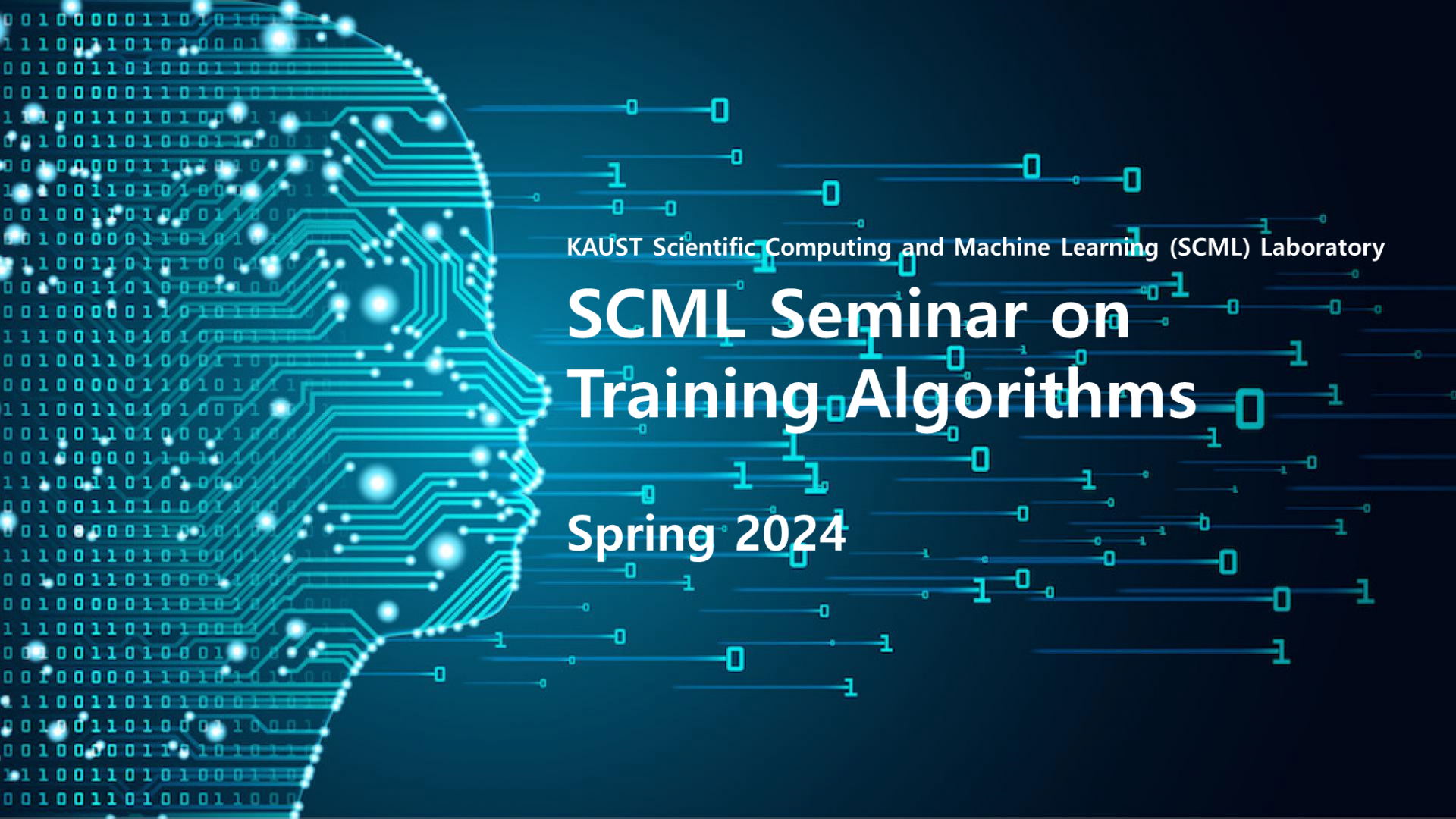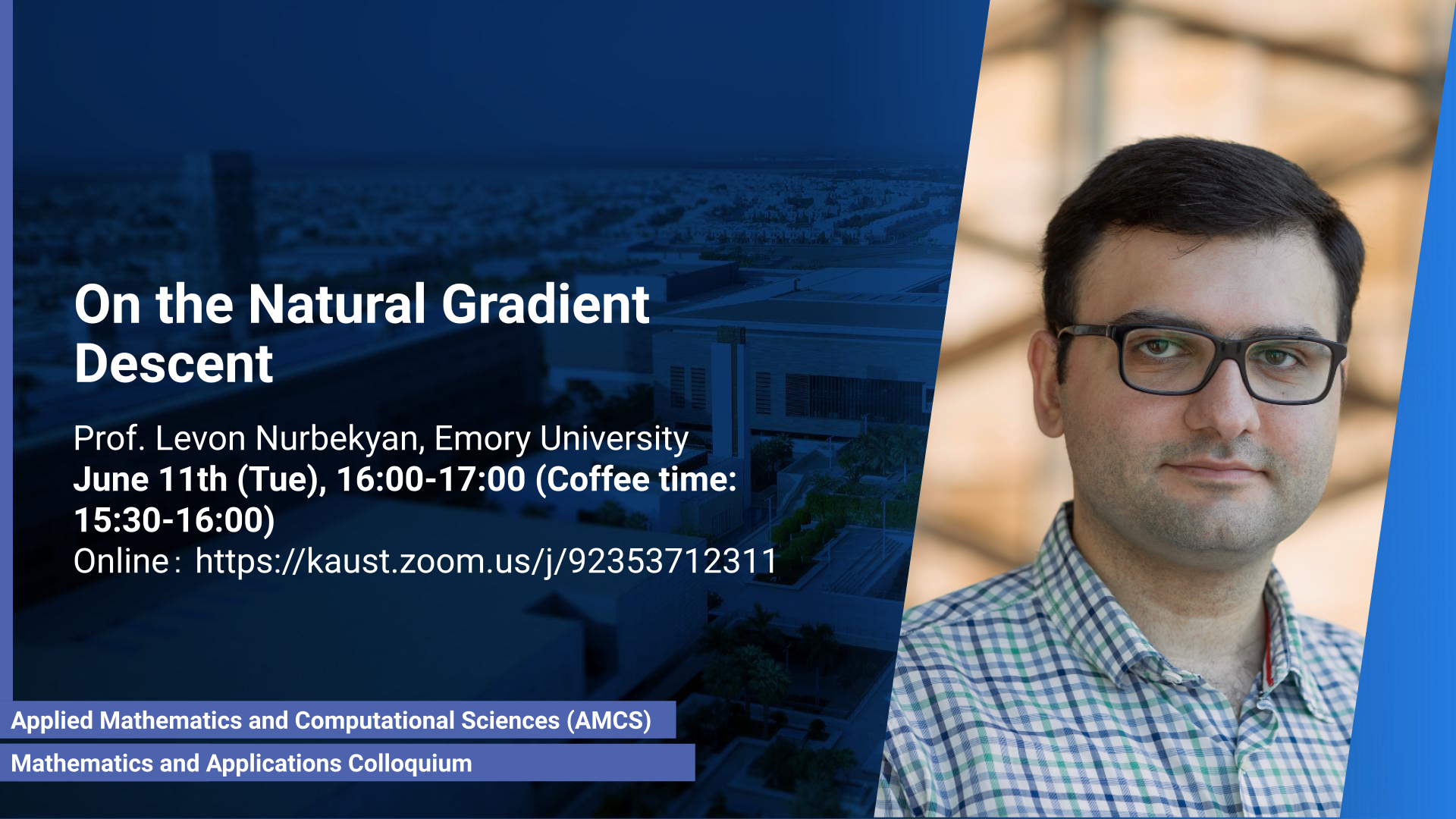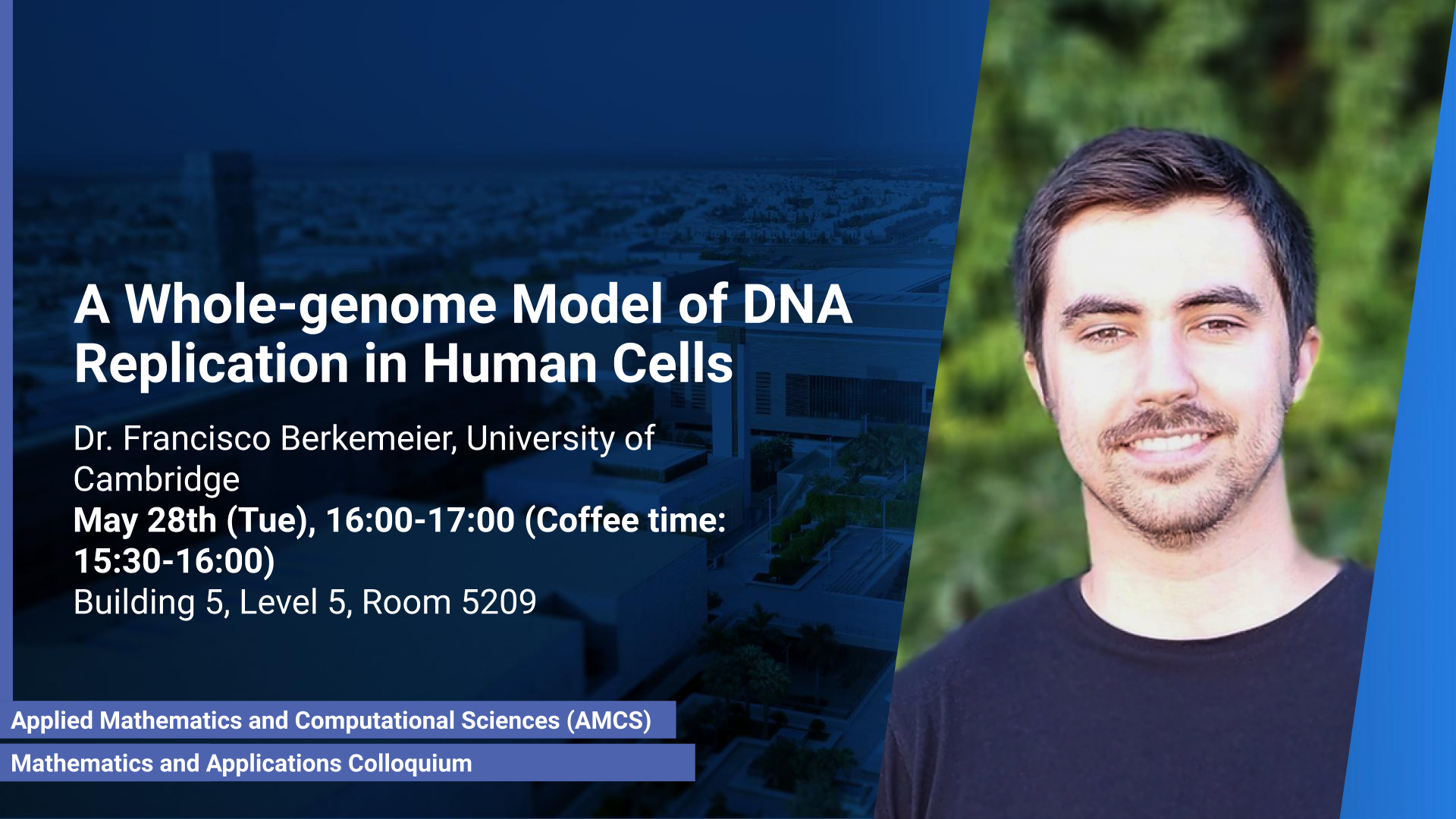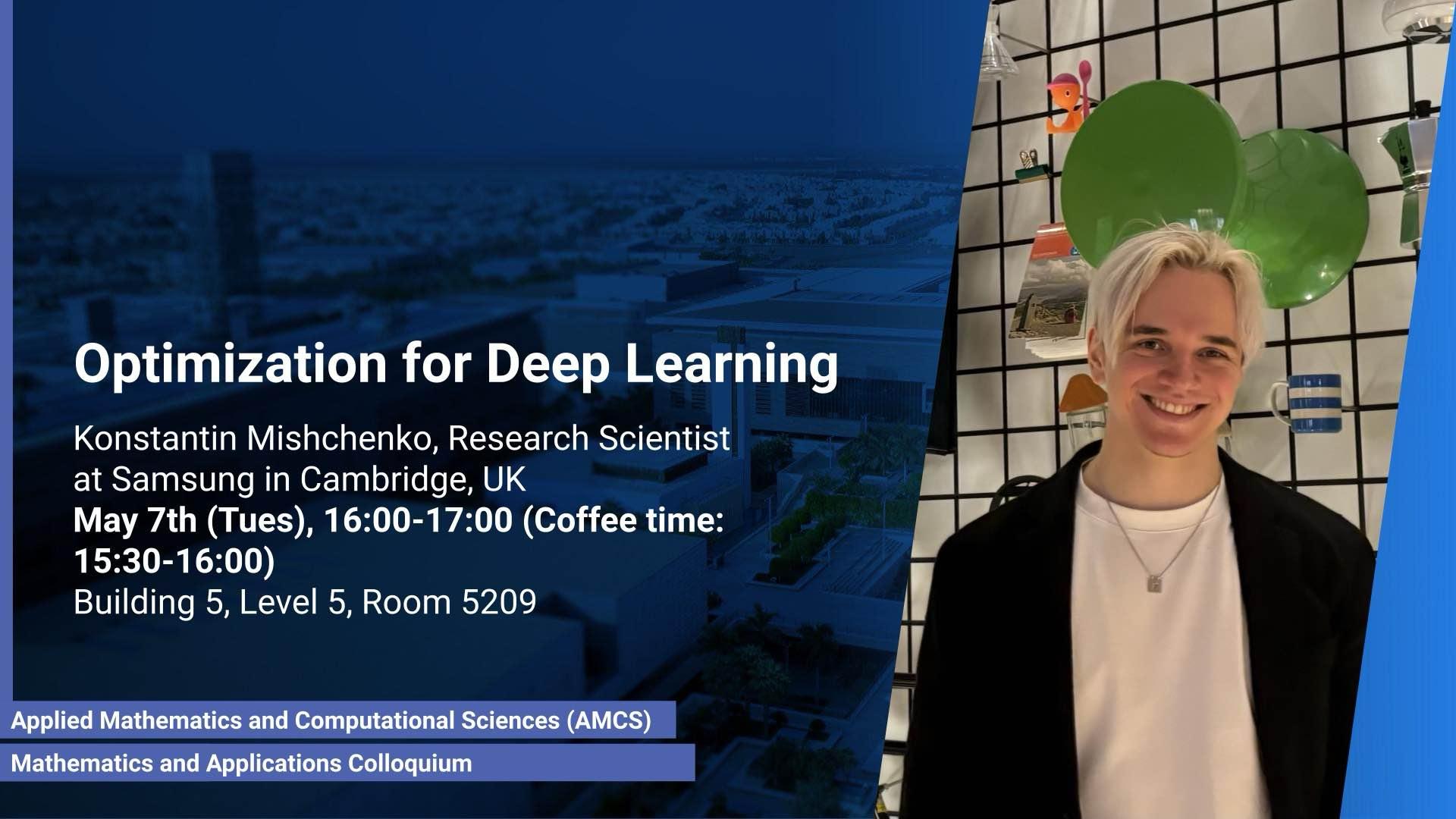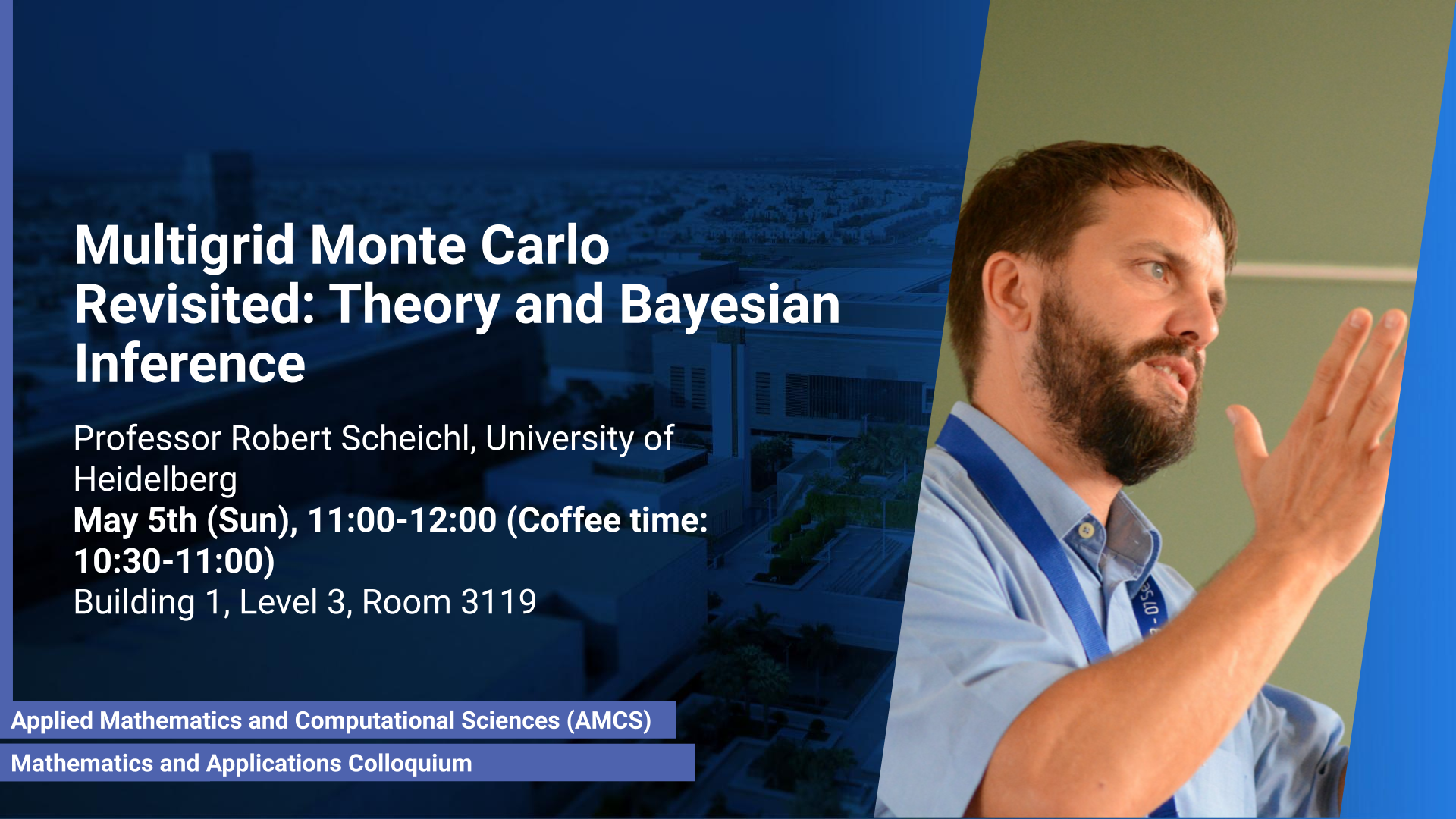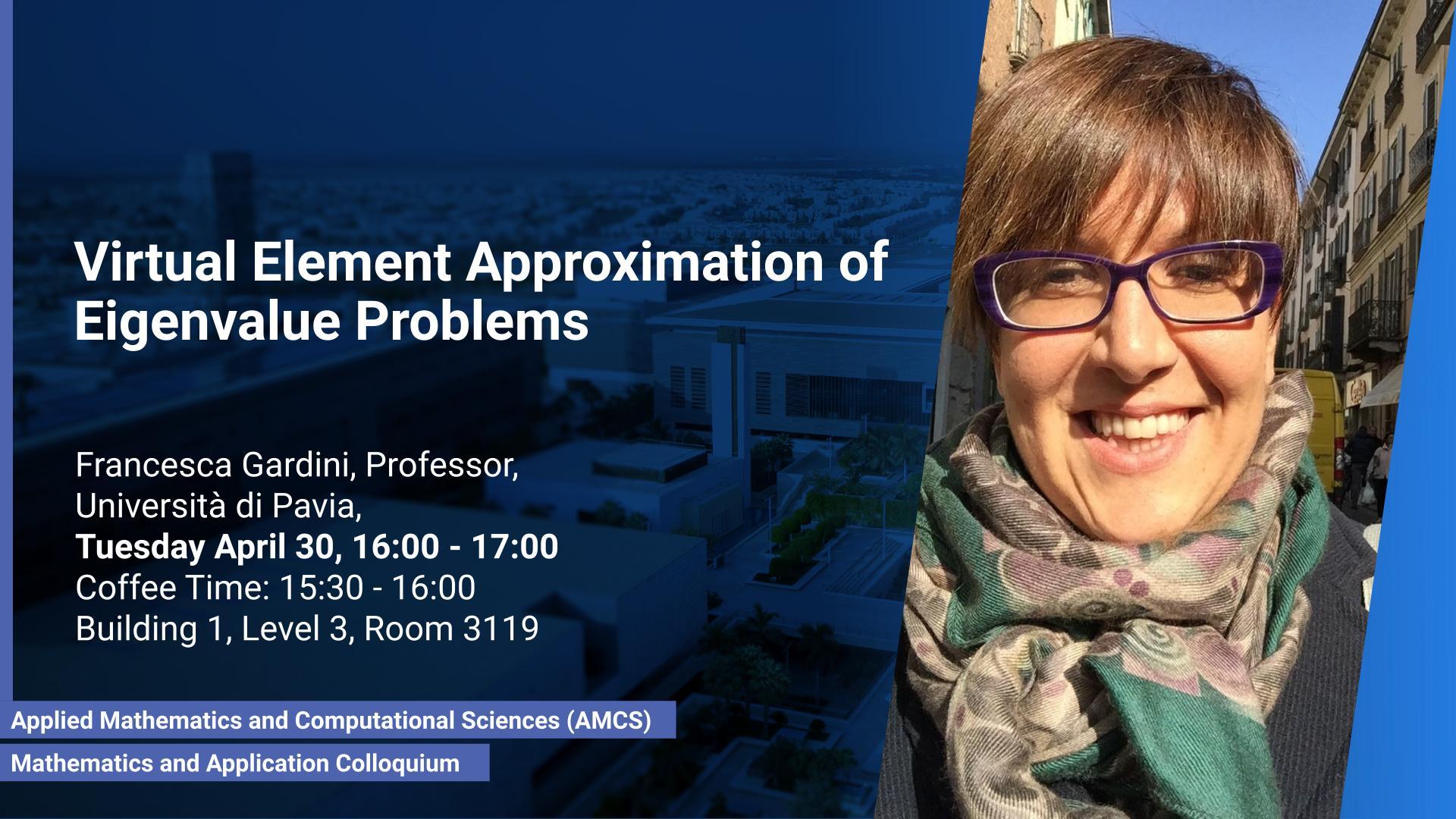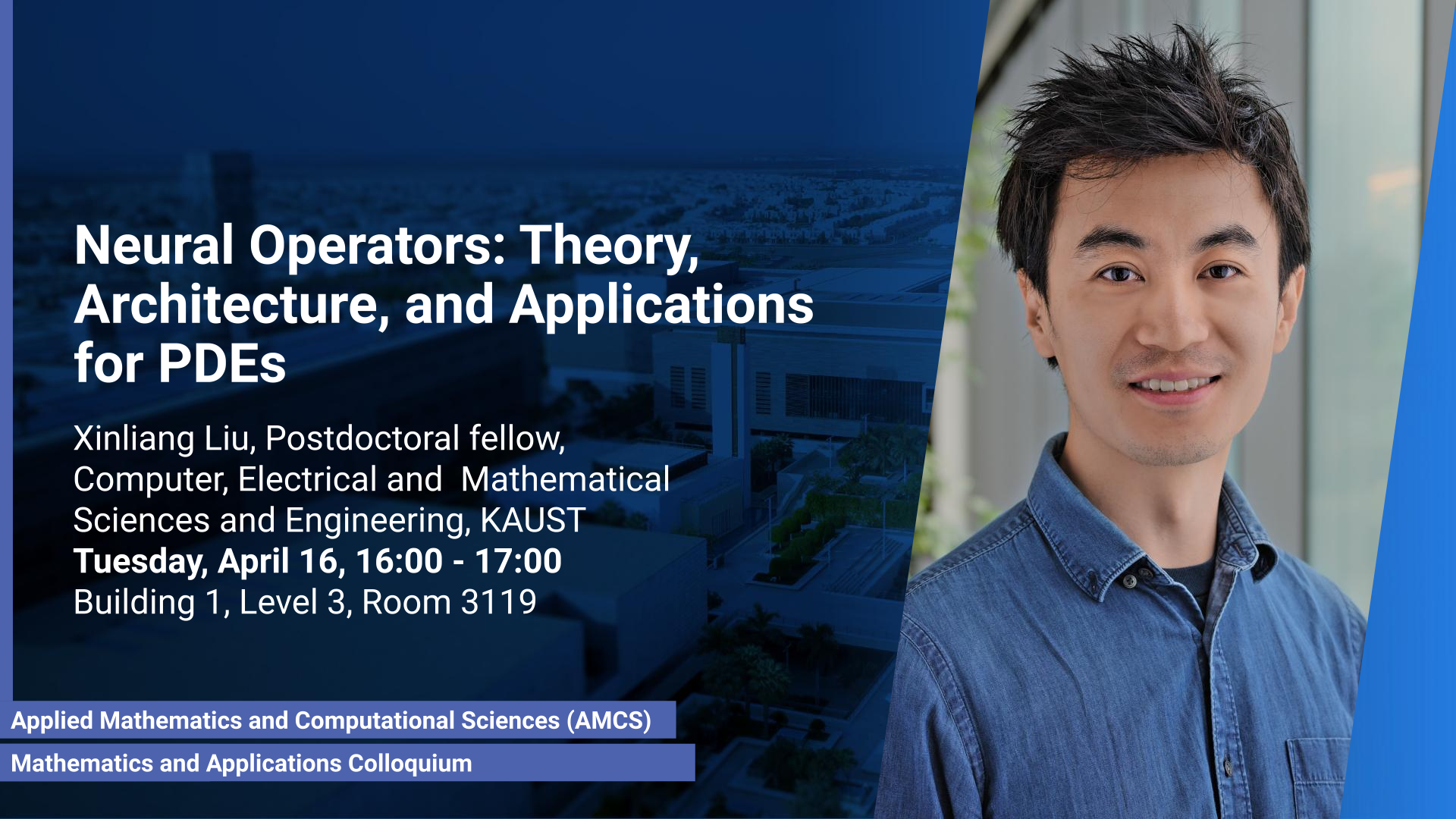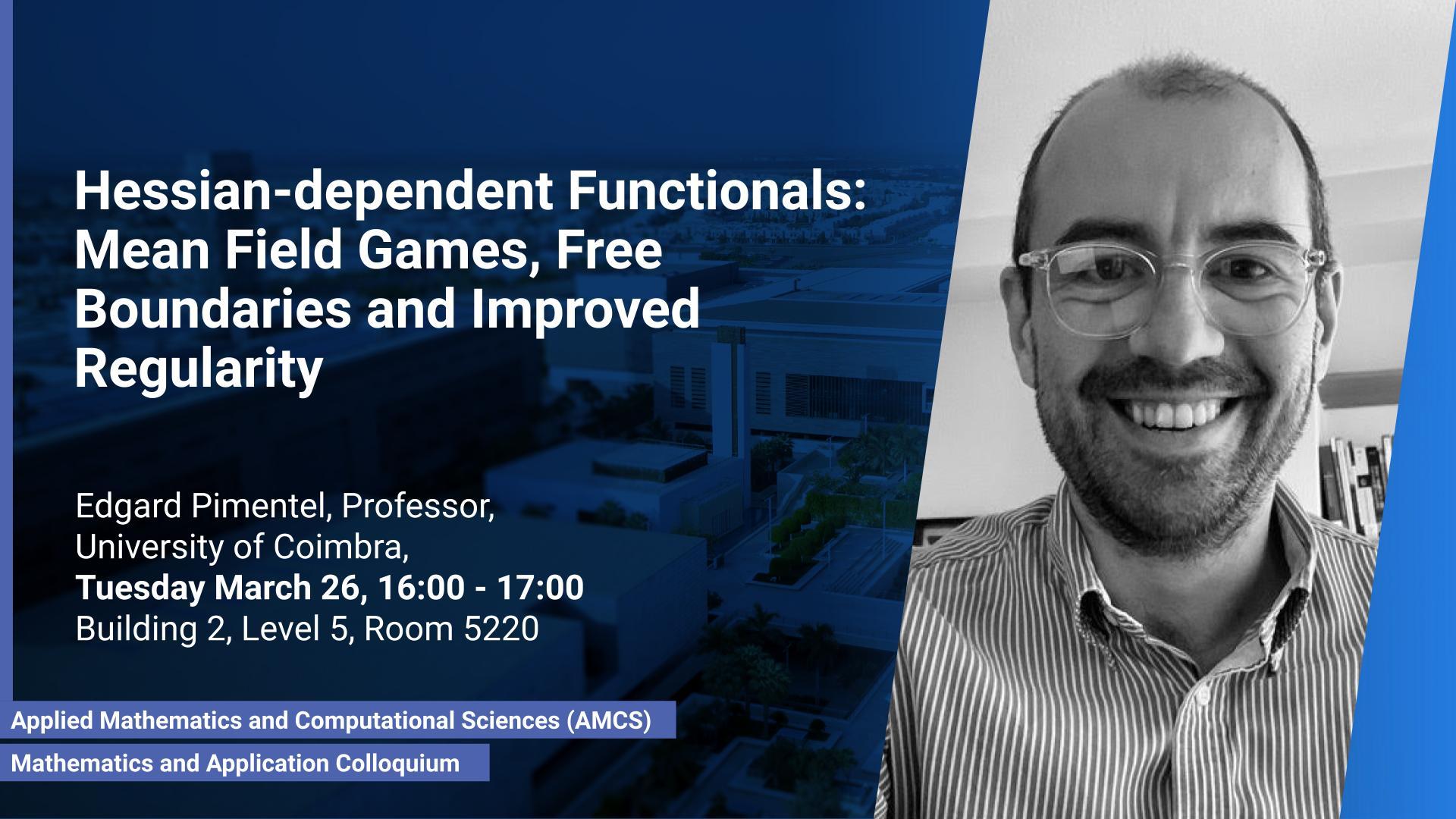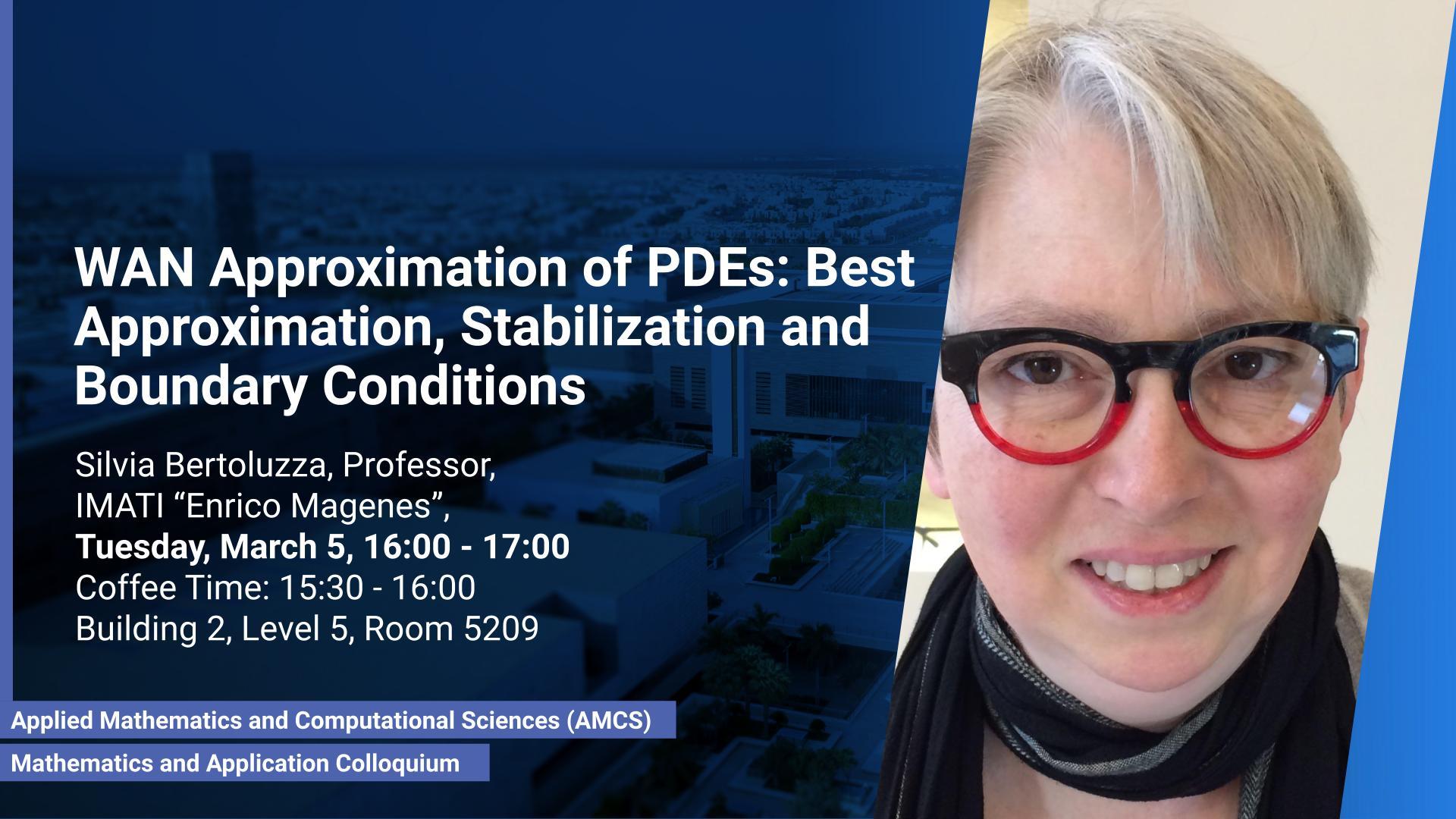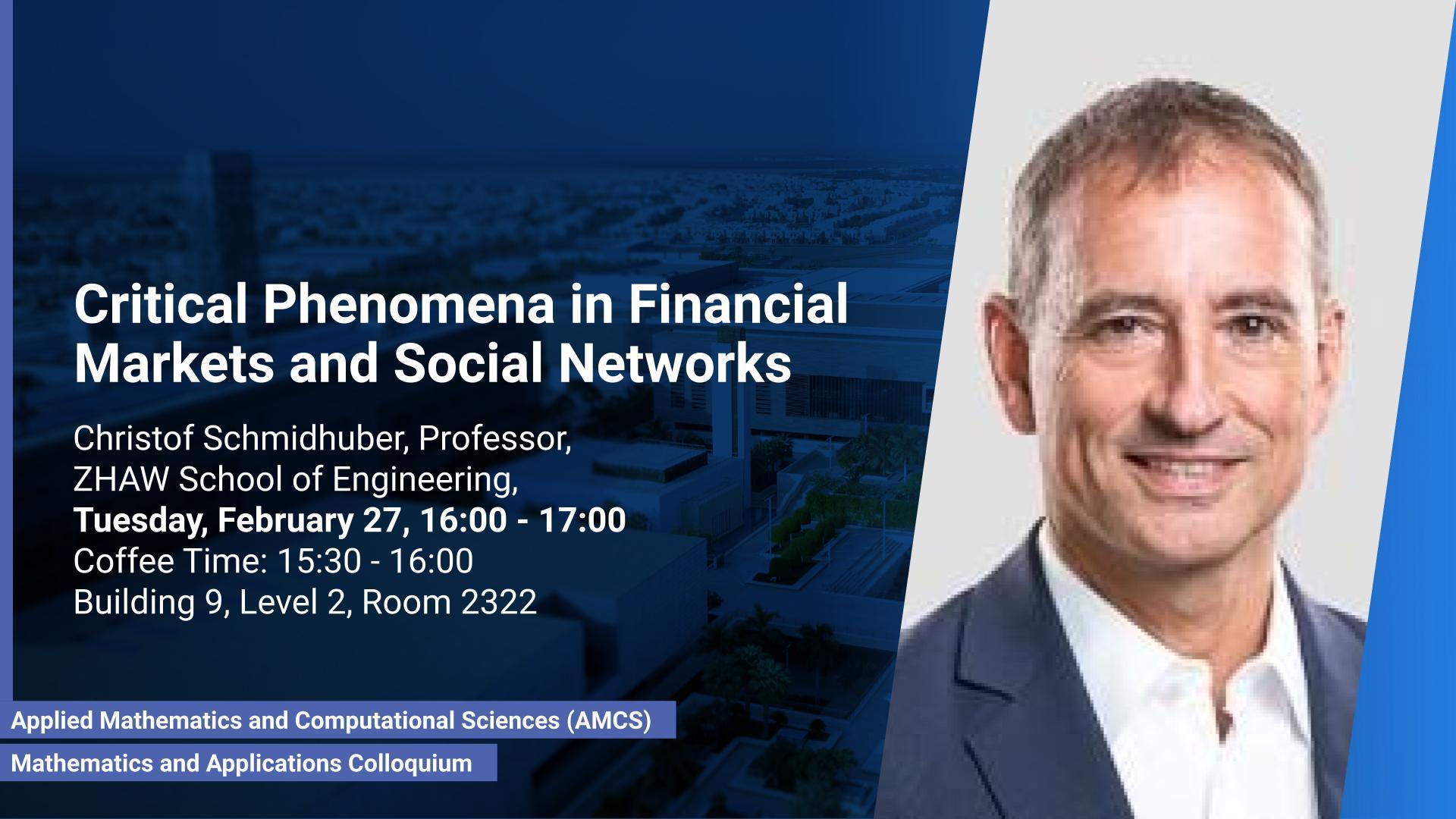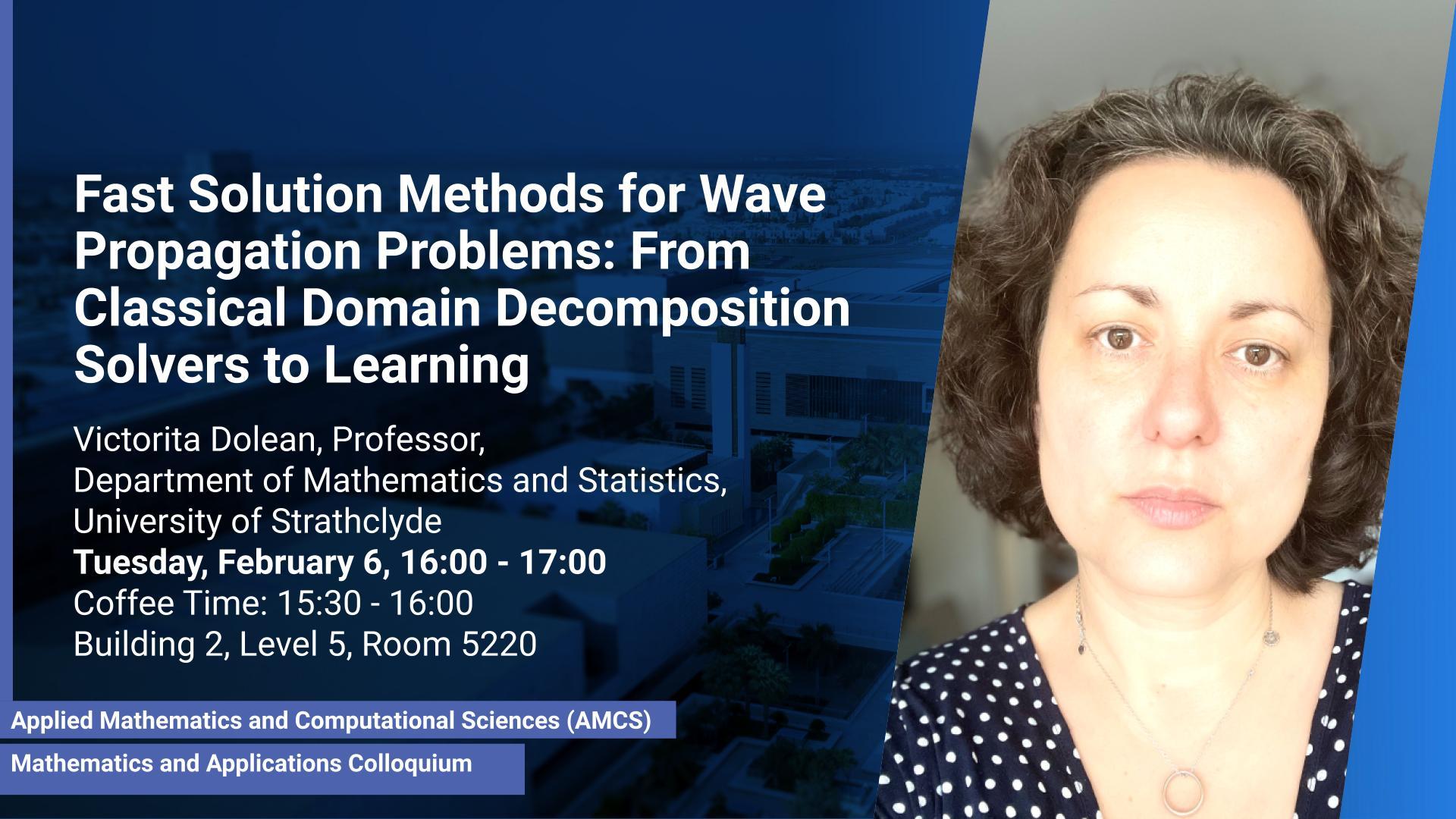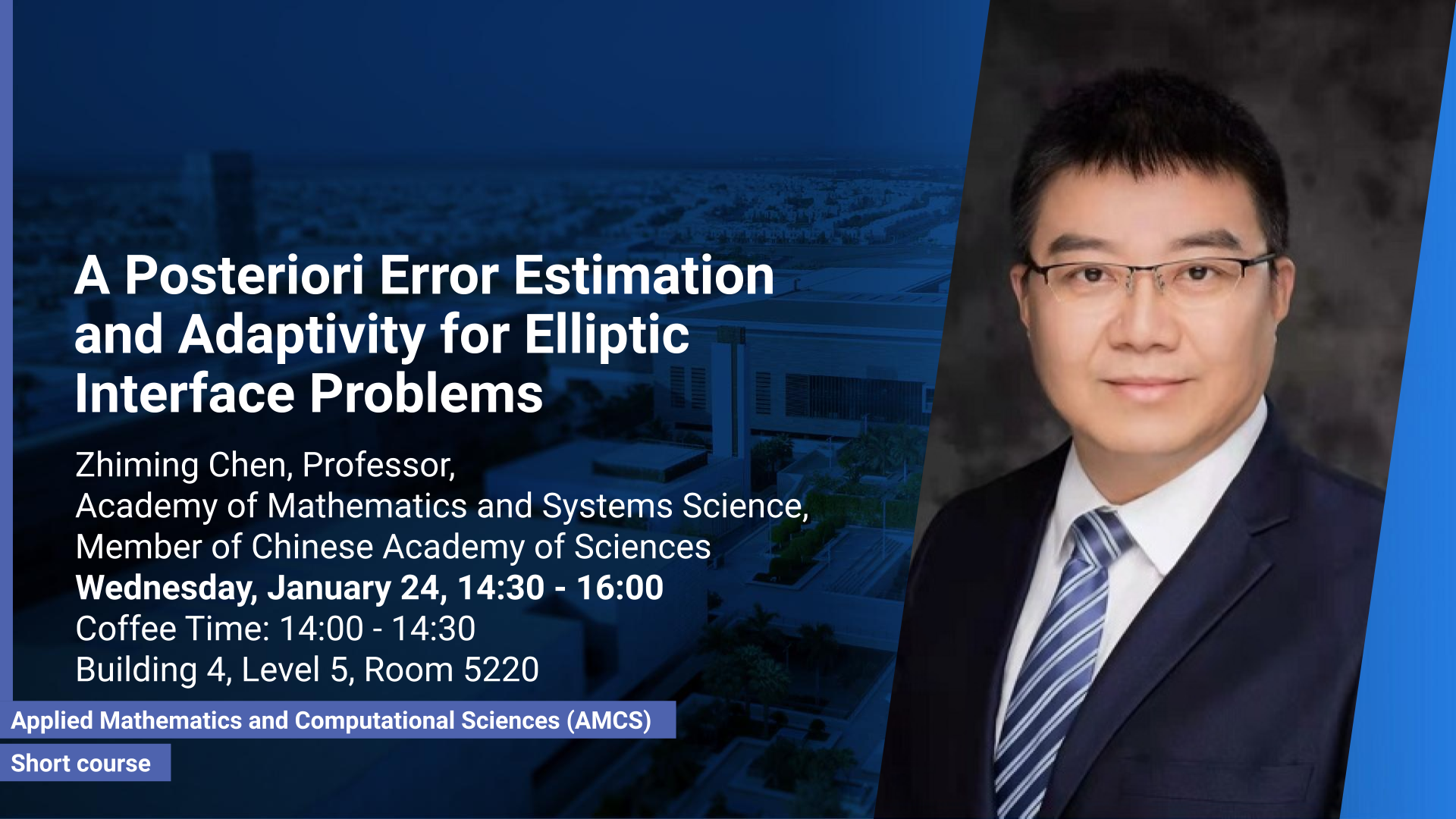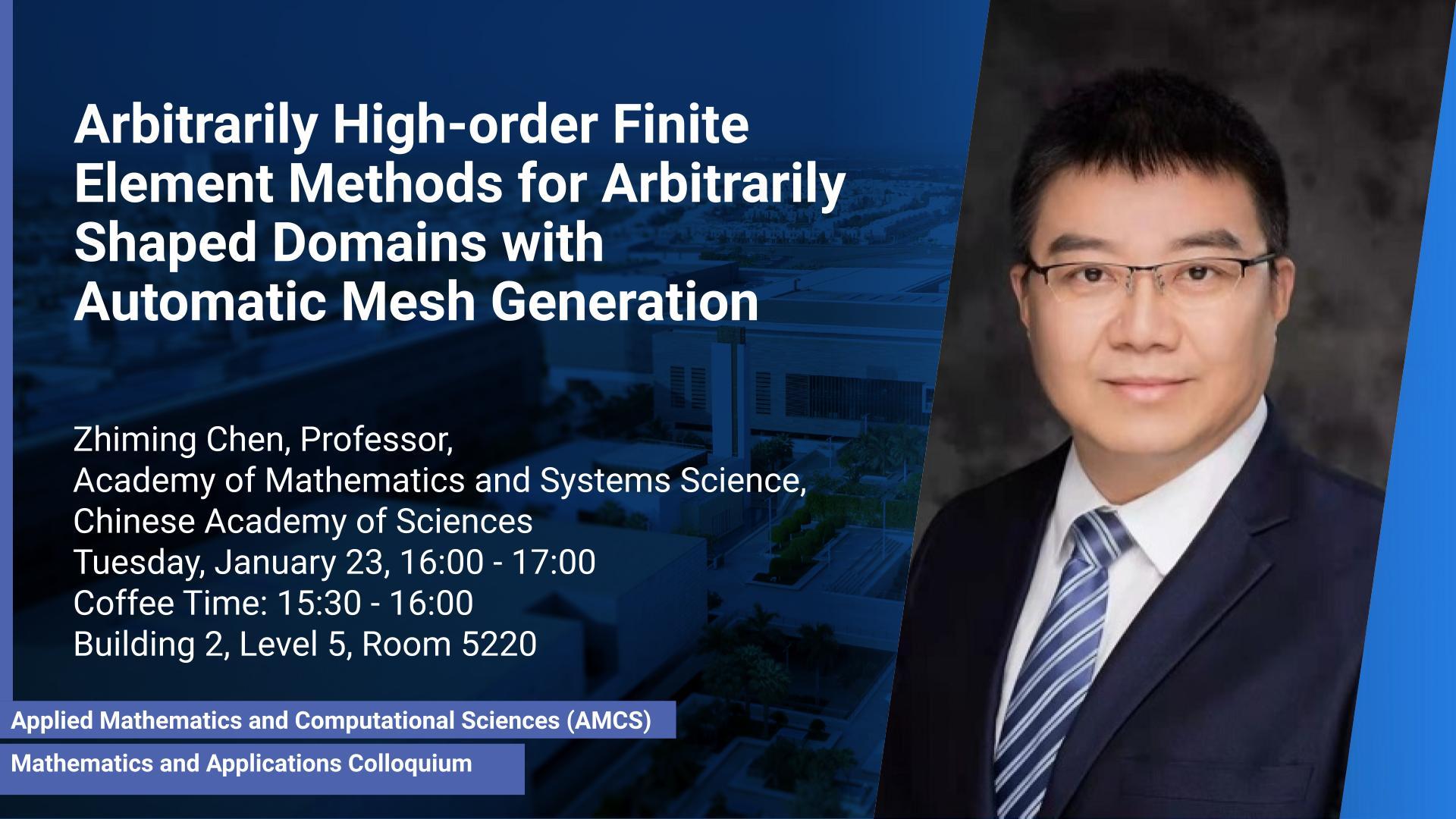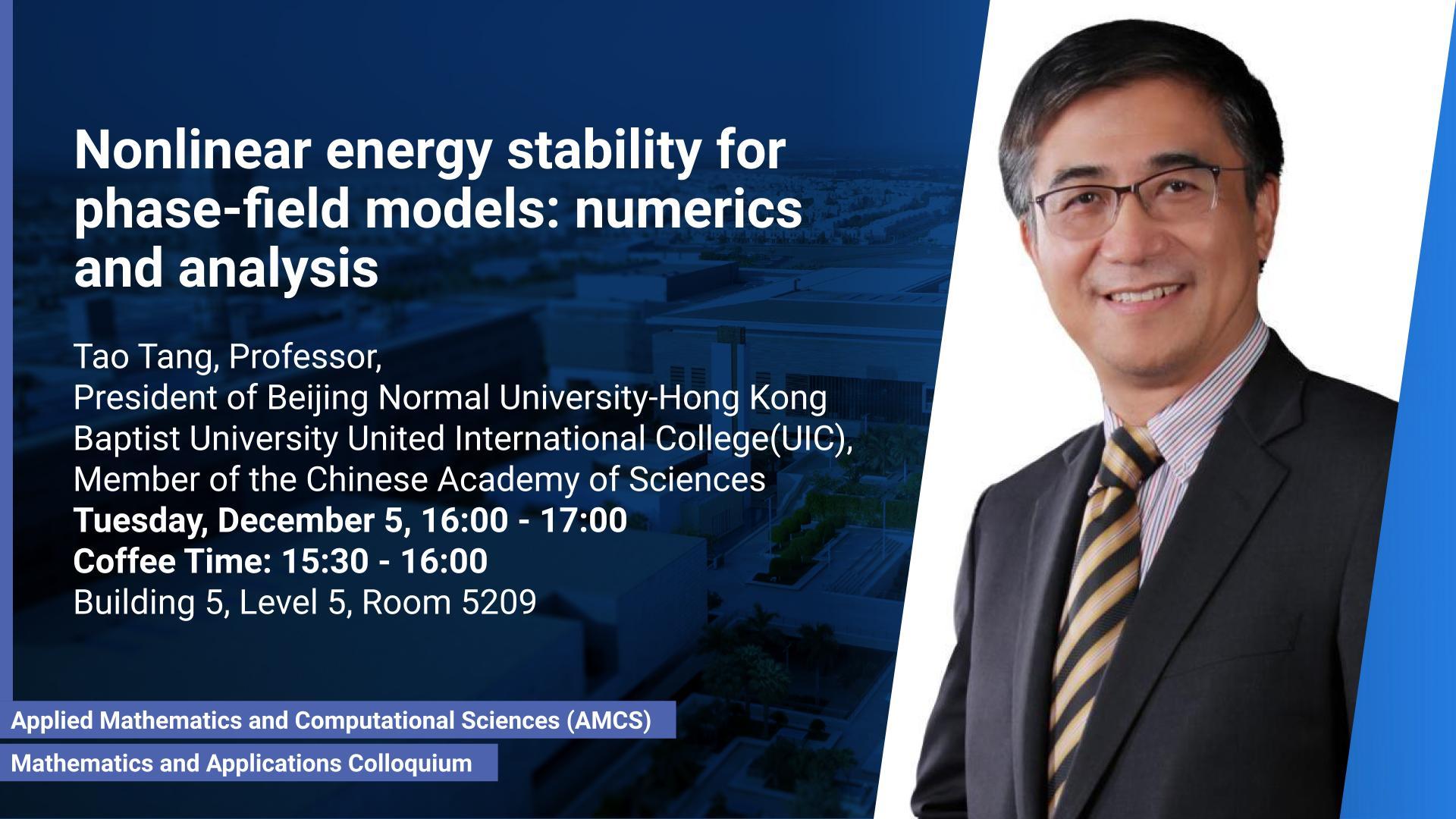Contact Person
Abstract
Due to the influence of geological activities, fractures are c
Contact Person
Contact Person
Abstract
Digital geometry processing technology is widely used in compu
Abstract
The accurate numerical prediction of complex processes in medicine, science, and engineer
Contact Person
Contact Person
This seminar is an online interview for a postdoctoral position in KAUST.
Contact Person
Abstract
GPT, Stable Diffusion, AlphaFold 2, etc., all these state-of-t
Contact Person
Abstract
Neural operator methods provide a novel approach for solving or learning the complex mapp
Contact Person
Abstract
In this presentation, we initially discuss the approxima
Contact Person
Contact Person
Contact Person
Contact Person
Abstract
In this presentation, I will share
Contact Person
Abstract
Multiscale elliptic equations with
Contact Person
Abstract
In this study, we aim to solve Biot’s consolidation models by
Contact Person
Abstract
We propose an unconditionally energy-stable, orthonormality-pr
Contact Person
Abstract
Deep neural networks have brought transformative changes in areas such as image recogniti
Contact Person
Abstract
Rather than a talk, this firstmost is an invitation to discussion.
